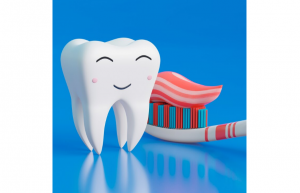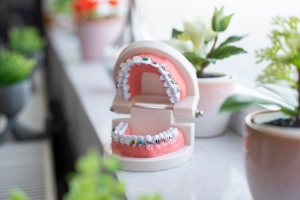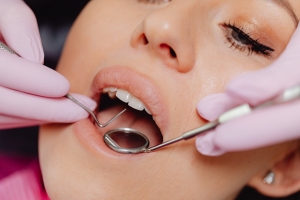Dental visits can be a source of anxiety for many children, but with the right approach, they can become enjoyable experiences. As a parent, you play a crucial role in shaping your child's perception of dental care. By implementing creative strategies and fostering a positive attitude, you can help your little one look forward to their dental appointments. This article will explore various techniques to make dental visits fun and stress-free for your child.
The Importance of Positive Dental Experiences
Creating positive associations with dental visits from an early age is essential for maintaining good oral health throughout life. When children feel comfortable and relaxed at the dentist's office, they are more likely to develop healthy habits and maintain regular check-ups as they grow older. By making dental visits fun, you're not just easing their immediate fears but also setting the foundation for a lifetime of good oral health.
Start Early and Be Consistent
One of the most effective ways to prepare your child for dental visits is to start early. The American Academy of Pediatric Dentistry recommends that children have their first dental visit by their first birthday or within six months of their first tooth erupting. By introducing dental care early, you normalize the experience and make it a regular part of their routine.
Consistency is key when it comes to dental visits. Schedule regular check-ups every six months, even if your child doesn't have any apparent dental issues. This routine helps your child become familiar with the dental office environment and builds trust with the dental team.
Use Positive Language and Avoid Negative Associations
The way you talk about dental visits can significantly impact your child's perception. Use positive language when discussing the dentist and avoid sharing any negative experiences you may have had. Instead of saying, "It won't hurt," which introduces the idea of pain, try saying, "The dentist will count your teeth and make them shine!"
Avoid using words like "shot," "drill," or "pain" when talking about dental procedures. If your child asks about specific treatments, use child-friendly terms provided by your dentist or simply explain that the dentist will use special tools to keep their teeth healthy and strong.
Role-Play Dental Visits at Home
Children often feel more comfortable in familiar situations. Role-playing dental visits at home can help your child understand what to expect and feel more at ease during the actual appointment. Here are some ideas for dental role-play:
- Take turns being the dentist and the patient
- Use a stuffed animal or doll as the patient
- Count teeth using a small mirror
- Demonstrate proper brushing techniques
- Practice opening wide and letting someone look inside the mouth
Make the role-play fun and engaging by incorporating your child's favorite toys or characters into the scenario. This playful approach can help reduce anxiety and make the real dental visit feel like an extension of their playtime.
Read Books and Watch Videos About Dental Visits
There are numerous children's books and educational videos that focus on dental visits and oral health. These resources can help familiarize your child with the concept of going to the dentist in a fun and engaging way. Look for age-appropriate materials that feature relatable characters and positive dental experiences.
Some popular children's books about dental visits include:
- "The Berenstain Bears Visit the Dentist" by Stan and Jan Berenstain
- "Just Going to the Dentist" by Mercer Mayer
- "Curious George Visits the Dentist" by H. A. Rey
You can also find child-friendly videos on platforms like YouTube that showcase positive dental experiences and explain dental procedures in a kid-friendly manner.
Create a Reward System
Implementing a reward system can be an effective way to motivate your child and associate dental visits with positive outcomes. However, it's essential to focus on non-food rewards to promote good oral health. Some ideas for dental visit rewards include:
- Stickers or temporary tattoos
- A small toy or book
- Extra playtime or a special outing
- A fun activity or craft project
- Choosing the family movie for movie night
Be sure to emphasize that the reward is for their bravery and cooperation during the visit, not just for going to the dentist. This approach encourages positive behavior and helps build confidence.
Choose a Child-Friendly Dental Office
The environment of the dental office can significantly impact your child's experience. Look for a pediatric dentist near me who specializes in treating children. These offices are often designed with kids in mind, featuring:
- Colorful and engaging decor
- Child-sized dental equipment
- Games, toys, and books in the waiting area
- TVs or tablets for entertainment during procedures
- Child-friendly language and explanations
Visit the dental office before your child's appointment to familiarize them with the environment and meet the staff. Many dental offices offer "happy visits" where children can explore the office, sit in the dental chair, and meet the dentist without any treatment being performed.
Teach Proper Oral Hygiene at Home
Helping your child develop good oral hygiene habits at home can make dental visits less daunting. When children understand the importance of caring for their teeth and have established routines, they're more likely to view dental visits as a natural extension of their oral care.
Make brushing and flossing fun by:
- Using a tooth-brushing app or timer
- Playing their favorite song during brushing time
- Letting them choose their toothbrush and toothpaste
- Creating a brushing chart with stickers for completed sessions
- Brushing together as a family
By making oral hygiene enjoyable at home, you're reinforcing the idea that dental care can be fun and rewarding.
Address Your Child's Concerns and Questions
Children often have questions or concerns about dental visits. Take the time to listen to your child and address their worries. Be honest in your explanations, but keep things simple and age-appropriate. If your child expresses specific fears, work with them to develop coping strategies, such as:
- Deep breathing exercises
- Bringing a comfort item (like a stuffed animal) to the appointment
- Using hand signals to communicate with the dentist
- Listening to music or audiobooks during the visit
By acknowledging their concerns and providing tools to manage them, you empower your child to face their fears and build confidence.
Lead by Example
Children often mimic their parents' behaviors and attitudes. Demonstrate a positive attitude towards your own dental care by:
- Maintaining regular dental check-ups
- Practicing good oral hygiene at home
- Speaking positively about your dental experiences
- Involving your child in your dental care routine
When children see that you prioritize your oral health and have a good relationship with your dentist, they're more likely to adopt a similar outlook.
Celebrate Successful Dental Visits
After each dental visit, take time to celebrate your child's accomplishment. This doesn't have to be a grand gesture – simply acknowledging their bravery and praising their cooperation can go a long way. Discuss the positive aspects of the visit and reinforce the importance of maintaining good oral health.
Consider creating a tradition around dental visits, such as going to the park afterward or having a special (non-sugary) treat. These positive associations can help your child look forward to future appointments.
Collaborate with Your Dental Team
Build a strong relationship with your child's dental team. Communicate any concerns or specific needs your child may have before the appointment. Many dental professionals are experienced in working with anxious children and can offer additional strategies to make the visit more comfortable.
Don't hesitate to ask questions or request explanations during the appointment. When children see their parents actively engaged in their dental care, it reinforces the importance of the visit and helps build trust with the dental team.
By implementing these strategies and maintaining a positive attitude, you can help transform dental visits from a source of anxiety into fun and educational experiences for your child. Remember that every child is unique, so be patient and willing to try different approaches until you find what works best for your little one. With time and consistency, your child can develop a lifelong positive relationship with dental care, setting the stage for excellent oral health throughout their life.






